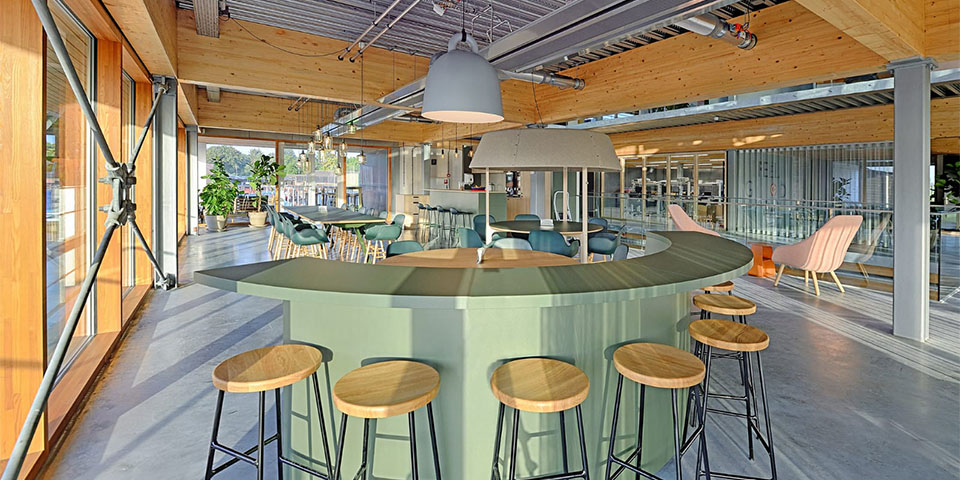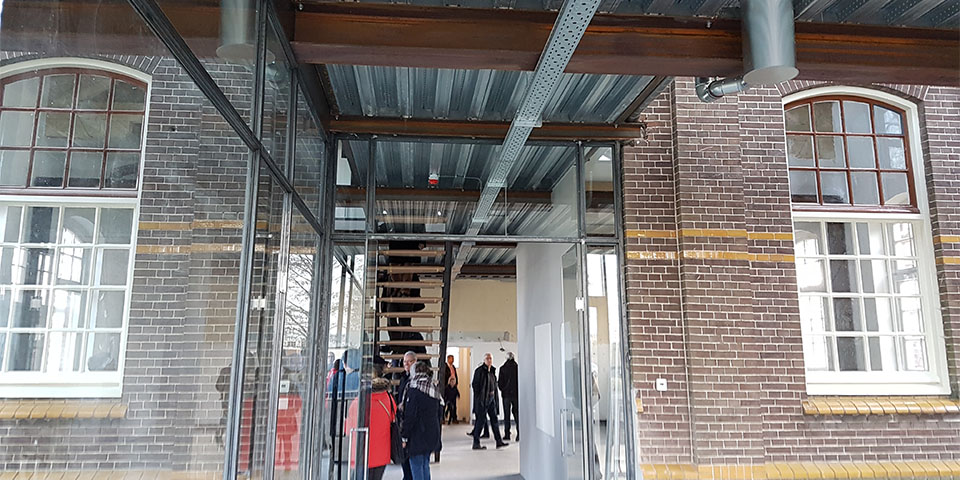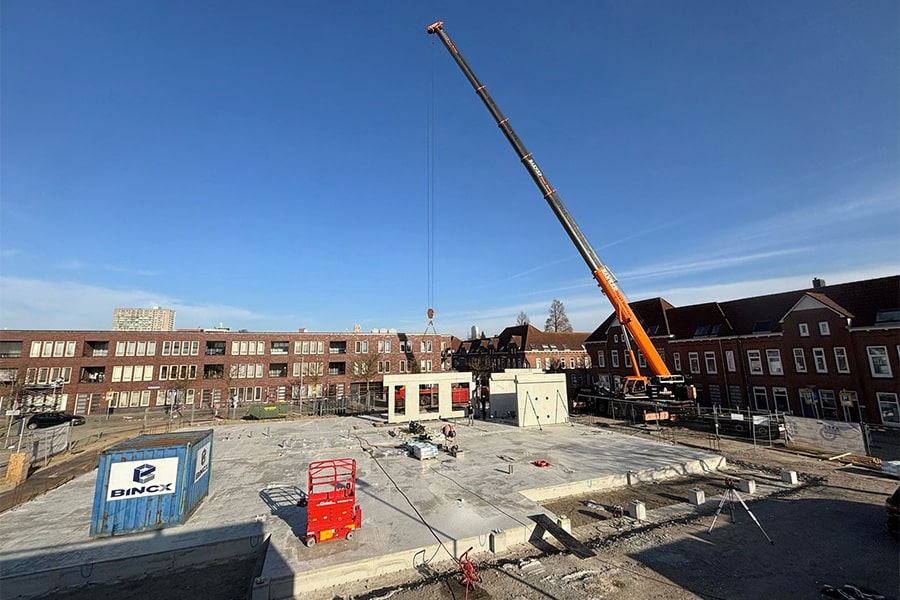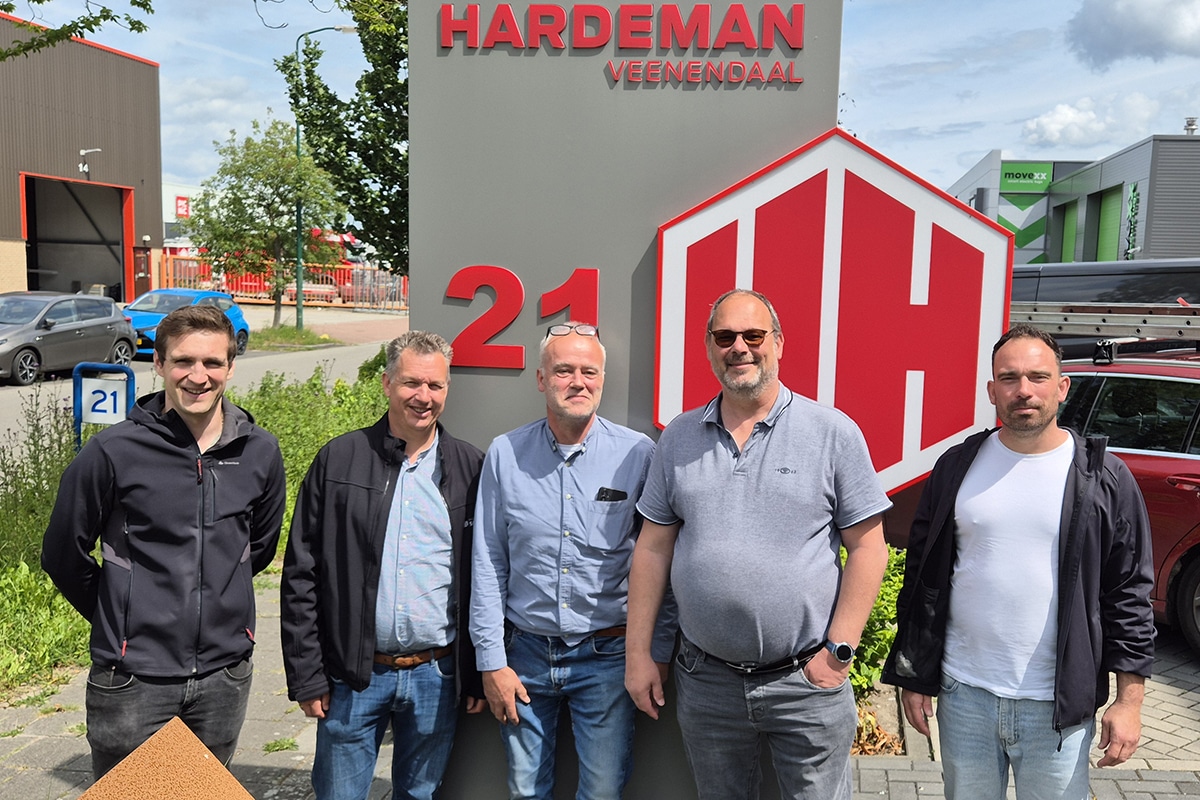
Steel plate concrete floors: versatile and smart
The application possibilities for steel plate concrete floors are far greater than many recognize. The flooring systems are also proving very suitable for renovations, transformations and even residential construction.
"In the Netherlands they usually only think in wood and concrete when it comes to the construction of floors," said Wim Snelders, owner of JG Staalplaat betonvloeren BV from Tolkamer. "In England, for example, it is quite common to use steel plate systems for homes as well. I just want to say: the application possibilities for steel plate concrete floors are really not limited to slim floor floors for parking garages and industrial buildings."

New construction Honeywell in Veldhoven.
Repurposed
JG Steel Sheet Concrete Flooring is a certified system partner of Thyssen Krupp to handle the Hoesch Additiv Decke for parking garages and is also a dealer of the versatile Comflor range. With both systems, the company has strong brands to build thin, lightweight floors mostly stamp-free for numerous applications. Many commercial buildings and parking garages have already been fitted with floors using these systems. Snelders: "In recent years, the conversion of office buildings to housing has been on the rise. There the slim solutions and easy-to-handle slabs turn out to be ideal when a new floor has to be made. And we are also doing more and more renovations, such as the Gasworks in Deventer, where the architect left steel plates visible. That was also done at Honeywell's recently completed new building in Veldhoven."

Gas plant in Deventer: steel plate concrete floor in transformation project.
First floor residences
As a rule, the structural engineer sets the basic principles for the construction of a building or renovation. "We can often still give them ideas," Snelders continues. "We take a technical look at the design. For example, if a floor can be built without propping, that means quite a lot for construction speed and cost. Or first floor floors for houses, which can be constructed with our systems without joists. Not all structural engineers are familiar with this solution."
Satisfied customers
In any case, the advantages of steel plate concrete floors are well enough known. The floors are lightweight; compared to hollow-core slabs, the difference is 35 percent. The steel plates are self-supporting during the pouring of the concrete, which usually allows for stamping-free work. The slabs are stackable and easy to handle in existing situations (renovation, transformation) and finally, the total floor thickness is limited, resulting in low height loss. Meanwhile, JG Steel Plate concrete floors are doing well. "We have a nice order portfolio with eighty percent regular customers. I can assume that this percentage indicates that they are satisfied customers."



